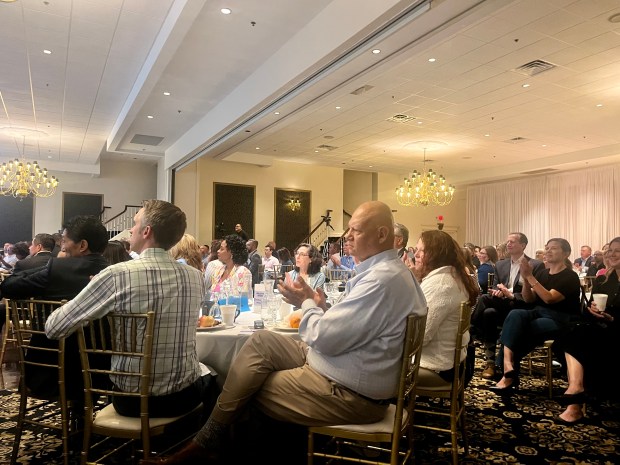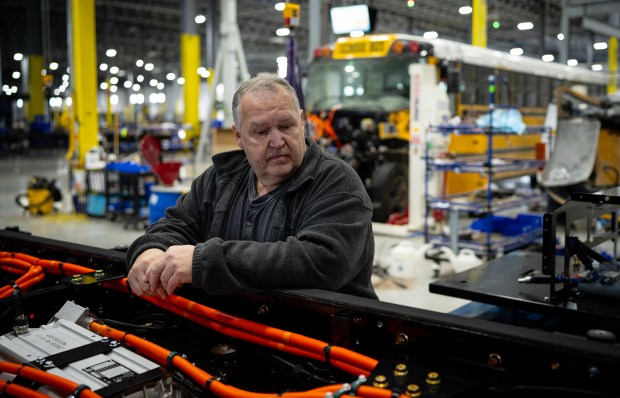While continued growth in population and jobs help Will County stand out as an economic hub in Illinois, the leader of an economic development group said Thursday the lack of diverse housing development and labor force issues are sticking points for the development of the southwest suburban region.
“The narratives about the demise of Illinois are, well, just a bit exaggerated,” said Doug Pryor, president and CEO of the Will County Center for Economic Development, after rattling off statistics comparing state and local economic growth standings.
“We’re performing well here,” Pryor said.
The comments came during the center’s annual Eye Opener breakfast, which highlights economic achievements of area public and private sector partnerships for about 300 business leaders and elected officials.
Pryor said Will County places in the top 20 of counties nationwide for new and expanding companies and for five years has held the top position in the state for job creation.
However, the labor force for an area that’s principal industry is manufacturing has not kept up, despite a 26% total wage increase from 2019 to 2023, he said.
“As this economy continues to grow, we’re going to see a continued demand for more people, more labor force, more ability to hire and hire from within the county,” Pryor said.
To encourage young people to stay and work locally, the Center for Economic Development kicked off a paid high school summer internship program last year, which they hope to expand to serve more businesses and students. The program provides about 40 students with work in large corporations, such as IKEA or Harbor Freight Tools, and local government offices and nonprofits.
“Look, folks, it’s not altruism,” Pryor said. “It’s about making these connections and hiring here.”
Following national trends, affordable housing remains difficult to find in the region, with the median home price increasing about 40% since 2019, Pryor said. The issue stood out to some in the nonprofit field, including United Way of Will County Development Director Ken Guldenbecker, who said municipalities and businesses need to continue work to increase low and income housing and to support diverse families.
“The number one need we hear about from folks reaching out to us, mainly via our 211 help line, is housing,” Guldenbecker said.
Guldenbecker said when resources become available, he’s confident organizations like United Way, in partnership with other groups, will help people get on the right path to sustaining themselves.
Projects underway in the county to boost the supply of housing, though mainly upscale units, include Lincoln Station in New Lenox and a proposed Edward Rose senior living and apartment development in Romeoville, Pryor said.
The CED leader also highlighted potential for more job growth in the Hollywood Casino Joliet’s move to a plot of land near the Interstate 80 and Interstate 55 interchange, which will require hiring up to 150 staff.
Still, new projects overall have slowed, with only 3 million square feet under construction in the entire county compared to 13 million square feet in 2022. Pryor said interest rate hikes have had a negative effect, with project development trending south of Will County.
But Pryor said residents still have plenty to celebrate over the past year, ranging from the CosMcs concept restaurant opening in Bolingbrook to the planned Crossroads Sports Complex that broke ground in New Lenox in April.
The organization’s treasurer Robert Filotto, owner of Joliet-based accounting firm Filotto Professional Services, said he appreciated hearing about such accomplishments.
“When you come to something like this and you see all the good news … and unless you’re involved in an organization like the CED, you really don’t know about this,” Filotto said. “I’ve often said Will County is like an island in the state of Illinois — we’ve been so successful.”
ostevens@chicagotribune.com





